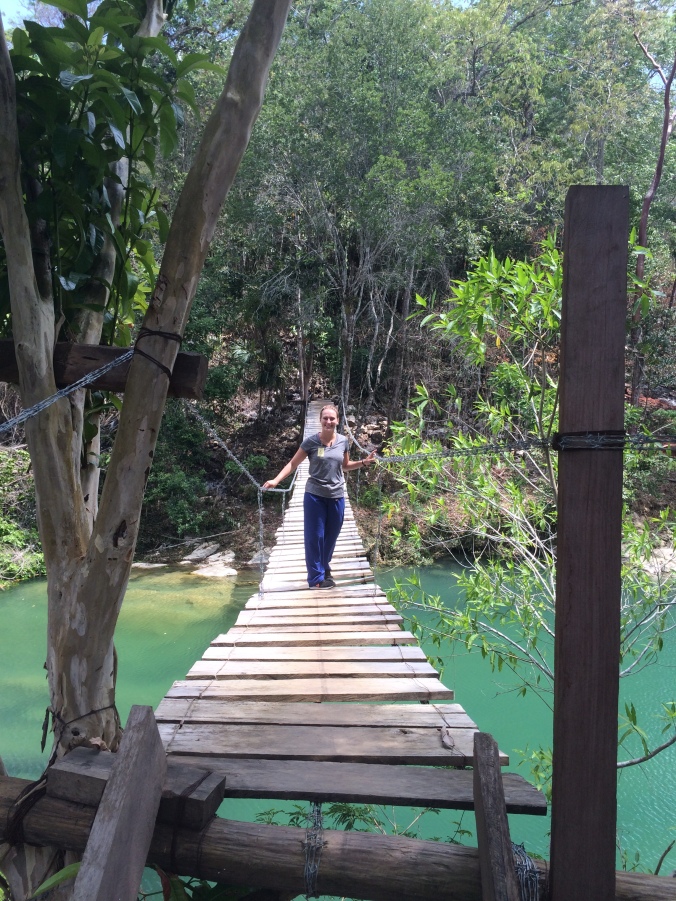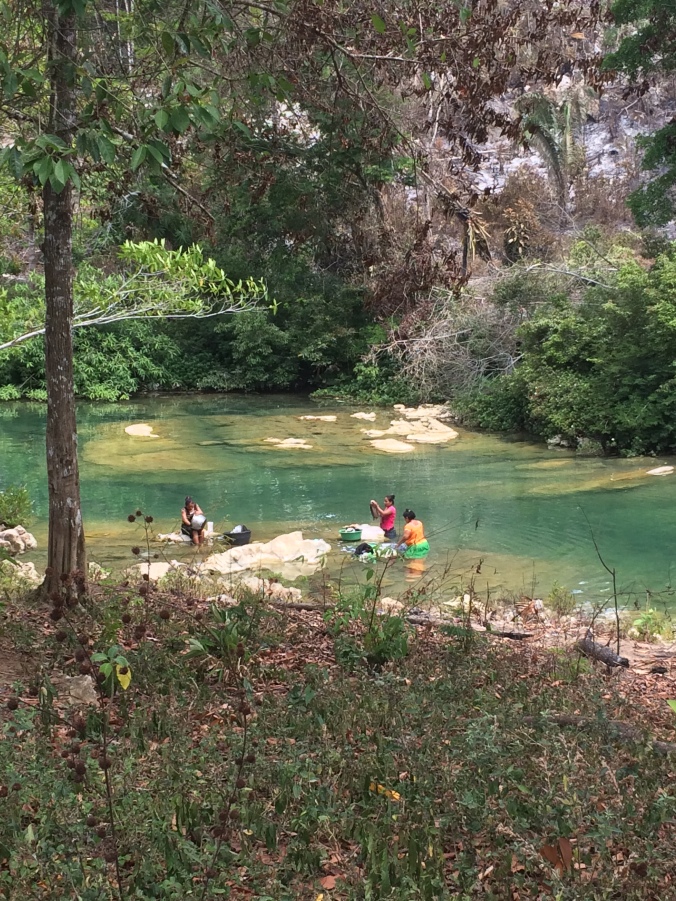Today I went on another mobile clinic. To start the morning off I went to a home health visit to treat a little girl with cerebral palsy. Compared to other individuals in Belize who I have been treating with CP, this patient was very functional. When we arrived she was sitting in her hammock doing her hair. She had athetoid CP which made controlling her arms and legs very difficult. She also was lucky enough to have a standing frame which she was instructed to use daily. This was not the case however. The mother reported that they stood in the frame “sometimes”. In this setting equipment like that is hard to come by and should be used as much as possible if someone is lucky enough to have one. To start the session I transferred her over to the standing frame and she stood for 10 minutes. While she was standing I wanted to distract her while simultaneously working on coordinating her movements. To do this I brought bubbles and a ball to play with. I started by blowing bubbles and making her pop them as she stood. Then we switched it and she was blowing the bubbles while I popped them. Once she was tired of the bubbles we switched over and played catch. After 10 minutes of standing she became tired and wanted to get out of the standing frame. I transferred her back over to a chair and we working on kicking a ball to coordinate the movements of her legs. Her right leg was much more controlled than the left but still needed some work. This case in particular frustrated me a little because in the states a patient with CP and this level of function would be receiving much more care and would potentially be enrolled in a program at school to keep her engaged in the community. Here in Belize she is unable to leave her home and is not getting any form of an education or any social interaction with other peers her age. This combined with the mothers lack of implementing the home exercise program is limiting a lot of the potential I think this young woman has.
Before coming back to the clinic site to continue treating I decided to explore a little bit around the village. I quickly found a river and a cool bridge that crossed over it. I also found a group of woman doing their washing in the river.

Working very hard as you can tell

The woman washing in the river
Back at the clinic site I co-treated a patient with another PA student again. In her chart her age was written as 90s? because the woman was completely unaware of how old she was but suspected that she was in her 90s. This woman had pain EVERYWHERE. Low back, upper back, headaches, abdominal, bilateral knees, and hips. Initial hearing this I assumed she had a large amount of osteoarthritis which is common with age but that was not the case. Since there was abdominal pain, the PA student started her screen first. She quickly found two large masses in her stomach. The supervising doctor stepped in to examine the patient’s stomach and we quickly recognized that she had two large tumors in her stomach. This was very upsetting because at her age and her village location, there is little treatment that can be done for her suspected cancer. Obviously this finding prevented me from continuing my evaluation since cancer is a clear contraindication for a lot of physical therapy activities. Instead I discusses with my supervising therapist the options of providing her activities to do that would both keep her from regressing more as well as keep her spirits high. She was crying during the entire session and appeared to be unable to make smile. At one point she told me (through translation since she spoke kekchi) that she wished should would just die. Being the person that I am I decided this was not how the treatment session was going to go. Instead I decided to find a way to lift her spirits. I was providing her exercises and was attempting to speak the little kekchi that I know. We were doing the basic task of extending her knee and lifting her leg and putting it back down (LAQs combined with a seated march). In this setting the patients understand the task by saying “taxi” which means lift and “coopsi” which means down. I started to slowly pick up the pace that I was saying these two words making her kick her leg up and down at a very fast pace and before I knew it she was laughing out loud and smiling. As you can imagine it is hard to make someone laugh after they just received the news that they have cancer and there is not treatment to help them at this point. It was great to be able to find a way to keep her spirits up and keep her laughing.